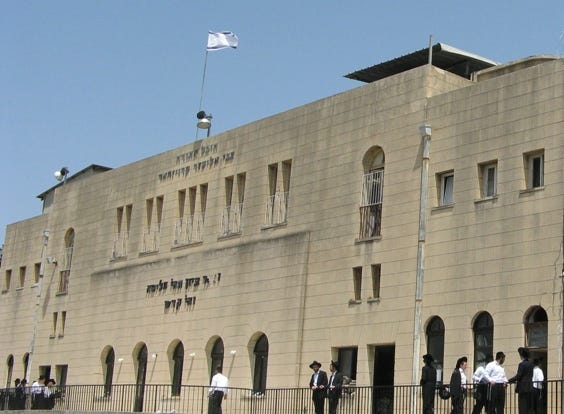Yom Ha-Atzmaut and Rationalism
(A re-post from two years ago, with new material at the end)

What is the connection between Yom Ha-Atzmaut and rationalism?
I would like to suggest that the rationalist/ non-rationalist divide serves to explain one very minor aspect of the dispute between those who celebrate Yom HaAtzmaut and those who do not.
When I was in yeshivah, I remember that we all viewed the Biblical and Talmudic era as being something like Tolkien's Middle-Earth. There were giants, dwarfs, fabulous beasts, and magicians. Our revered ancestors possessed extraordinary powers; Chazal could instantly incinerate people by looking at them, and any of the Avos would be able to defeat hundreds of people in battle without even raising a finger. These people were of perfect character and of a spiritual level that we cannot even begin to start to attempt to grasp in the slightest degree; if we were to even look at them, we would drop dead. In the wonderful sefer Sichas Chullin, which explains the topics in Maseches Chullin with the aid of diagrams, the author apologizes for including simple illustrations of people involved in slaughtering animals, etc.; he assures the reader that these are certainly not intended to be depictions of Chazal, "who have the visage of a Seraph, and no person shall see them and live." (Which is paraphrasing a verse referring to God, not man.) And this is Chazal; the figures in Tenach were many orders of magnitude greater.
These, it was considered, are the type of people who are involved in events of religious significance. Super-special people; not ordinary people like you or me, and certainly not irreligious people. I think that this perhaps contributes to the Charedi unthinkability of attributing religious significance to the State of Israel and its victorious battles. How could there be religious significance to events in which the pivotal people were ordinary folk, and in many cases not even religious?
People with a more rationalist outlook, on the other hand, don't look at people from the Biblical and Talmudic era as being that different from people today. Accordingly, it is perfectly possible for people of today to be involved in events of monumental religious significance.
ADDITION:
See too Rabbi Dov Lipman's article in the Jerusalem Post, where he points out the following:
But what about the claim that monumental steps towards the Messiah’s arrival cannot possibly be driven by secular leaders? This argument holds no weight. The Bible, especially in the book of Kings, reveals that God is willing to perform great miracles and brings salvation through individuals far more anti-religious than any of the state’s secular founders and leaders.
King Ahab, who married a non-Jew, encouraged idol worship and stood silent while his wife killed prophet, was told by a prophet that he would lead troops to miraculous victory (see Kings I 20:13-14). Omri, identified as a greater sinner than all the wicked Jewish kings before him, (Kings I 16:25), merited a long-lasting dynasty because he added a city to the Land of Israel (Sanhedrin 102b) despite the fact that his intention in adding that city was to eliminate Jerusalem as the focus of the Jews! The secular leaders of the State of Israel most certainly have more noble intentions in building Israeli cities and, thus, can certainly merit playing a role in the redemption process.
Kings I, Chapter 14 describes Yeravam as a terrible sinner who caused others to sin, as well. Despite his sins, he led the Jews to victory in restoring the borders of Israel. The Bible its elf explains that the time came for this “redemption” and God used whoever the leader was at the time, despite his being irreligious.
As I mentioned above, though, all this only explains one very minor aspect of those who do not celebrate Yom Ha'Atzmaut. The main reason, especially today, has very little to do with halachic or religious positions, and a lot more to do with sociological factors. See my monographs on "The Novelty of Orthodoxy" and "The Making of Haredim" to understand why the notion of being a fully participating citizen of the State of Israel, and the very idea of incorporating a new entity (The State of Israel) into one's religious worldview, is entirely at odds with the isolationism and traditionalism of charedi society. They'd be uncomfortable with it even if the Ribbono Shel Olam Himself were to say that it's kosher.
(In the picture: The Israeli flag flying at Ponovezh yeshivah in Bnei Brak)


